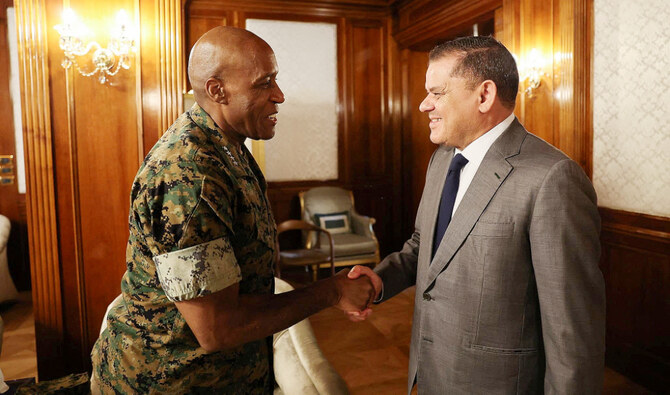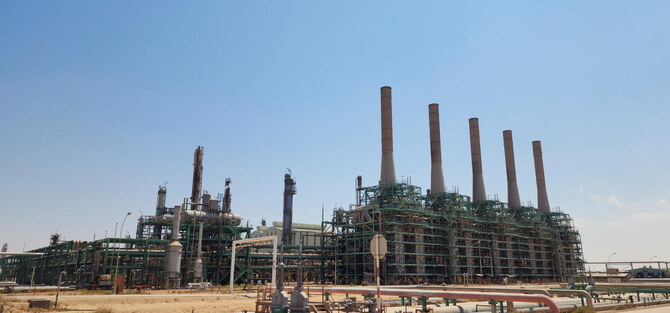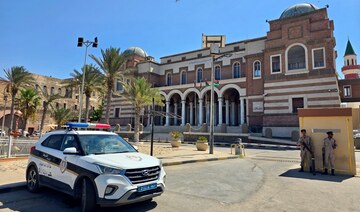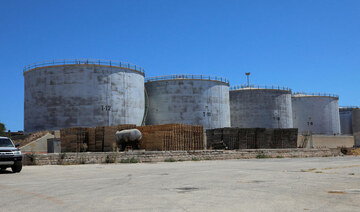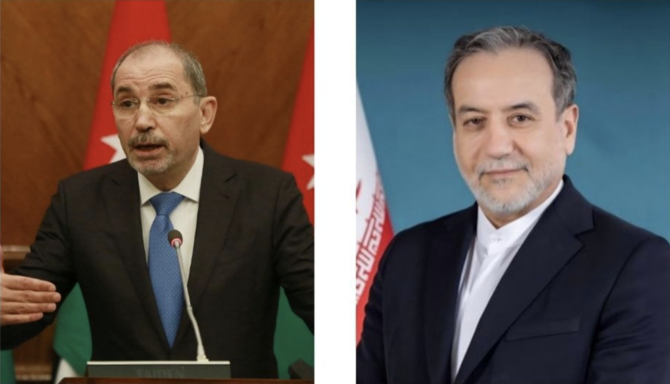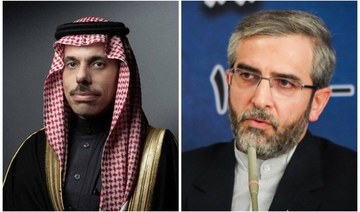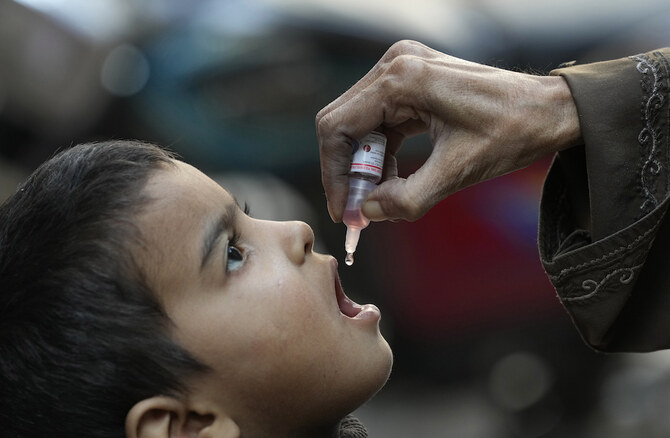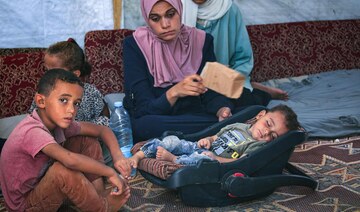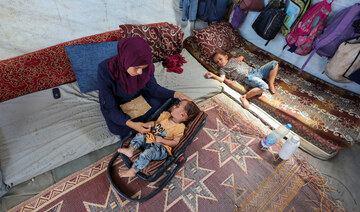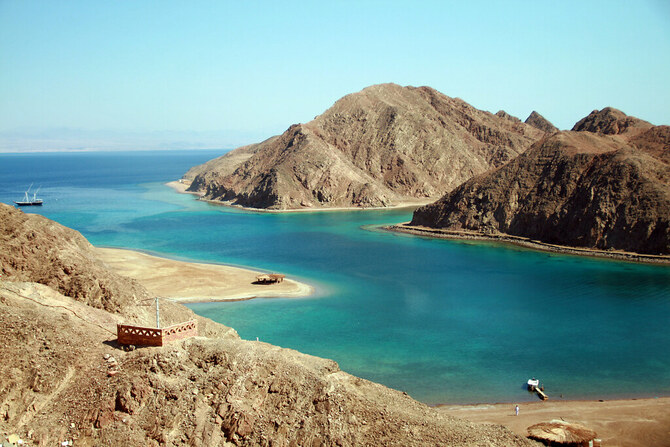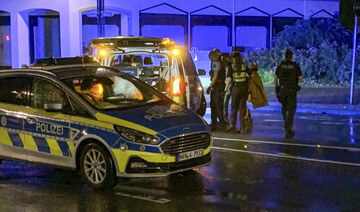DUBAI, United Arab Emirates: Three commercial ships in the Red Sea were struck by ballistic missiles fired from Houthi-controlled Yemen on Sunday and a US warship shot down three drones in self-defense during the hourslong assault, the US military said. Responsibility for the attack was claimed by the Houthi rebels, who are backed by Iran.
The attacks marked an escalation in a series of maritime attacks in the Mideast linked to the Israel-Hamas war, as multiple vessels found themselves in the crosshairs of a single Houthi assault for the first time in the conflict.
In a statement, US Central Command said the attacks “represent a direct threat to international commerce and maritime security. They have jeopardized the lives of international crews representing multiple countries around the world.” It said the three commercial ships and their crews are connected to 14 countries.
According to Central Command, the USS Carney, a Navy destroyer, detected a ballistic missile fired from Houthi-controlled areas of Yemen at the Bahamas-flagged bulk carrier Unity Explorer. The missile hit near the ship. Shortly afterward, the Carney shot down a drone headed its way, although it’s not clear if the destroyer was the target. The drone was also launched from Yemen.
About 30 minutes later, the Unity Explorer was hit by a missile, and while responding to the distress call the Carney shot down another incoming drone. Central Command said the Unity Explorer reported minor damage from the missile.
Two other commercial ships, the Panamanian-flagged bulk carriers Number 9 and Sophie II, were both struck by missiles. The Number 9 reported some damage but no casualties, and the Sophie II reported no significant damage.
While sailing to assist the Sophie II, the Carney shot down another drone heading in its direction. The drones did no damage.
“We also have every reason to believe that these attacks, while launched by the Houthis in Yemen, are fully enabled by Iran,” Central Command said, adding that the US will consider “all appropriate responses.”
UKMTO WARNING 001/ DEC/ 2023
INCIDENThttps://t.co/a6eYax4Zi0#MaritimeSecurity #MarSec pic.twitter.com/l2NOZgflqU
— United Kingdom Maritime Trade Operations (UKMTO) (@UK_MTO) December 3, 2023
The Carney, an Arleigh Burke-class guided-missile destroyer, has already shot down multiple rockets the Houthis have fired toward Israel so far in the war. It hasn’t been damaged in any of the incidents and no injuries have been reported on board.
Houthi military spokesman Brig. Gen. Yahya Saree claimed Sunday’s attacks, saying the first vessel was hit by a missile and the second by a drone while in the Bab el-Mandeb Strait, which links the Red Sea to the Gulf of Aden. Saree did not mention any US warship being involved in the attack.
“The Yemeni armed forces continue to prevent Israeli ships from navigating the Red Sea (and Gulf of Aden) until the Israeli aggression against our steadfast brothers in the Gaza Strip stops,” Saree said. “The Yemeni armed forces renew their warning to all Israeli ships or those associated with Israelis that they will become a legitimate target if they violate what is stated in this statement.”
Saree also identified the first vessel as the Unity Explorer, which is owned by a British firm that includes Dan David Ungar, who lives in Israel, as one of its officers. The Number 9 is linked to Bernhard Schulte Shipmanagement. Managers for the two vessels could not be immediately reached for comment.
Israeli media identified Ungar as being the son of Israeli shipping billionaire Abraham “Rami” Ungar.
The Houthis have launched a series of attacks on vessels in the Red Sea, as well as launching drones and missiles targeting Israel. The US has stopped short of saying its Navy ships were targeted, but has said Houthi drones have headed toward the ships and have been shot down in self defense.
Global shipping had increasingly been targeted as the Israel-Hamas war threatens to become a wider regional conflict — even as a truce briefly halted fighting and Hamas exchanged hostages for Palestinian prisoners held by Israel. However, the collapse of the truce and the resumption of punishing Israeli airstrikes on Gaza and a ground offensive there had raised the risk of the seaborne attacks resuming.
In November, the Houthis seized a vehicle transport ship also linked to Israel in the Red Sea off Yemen. The rebels still hold the vessel near the port city of Hodeida. Missiles also landed near another US warship last week after it assisted a vessel linked to Israel that had briefly been seized by gunmen.
However, the Houthis had not directly targeted the Americans for some time, further raising the stakes in the growing maritime conflict. In 2016, the US launched Tomahawk cruise missiles that destroyed three coastal radar sites in Houthi-controlled territory to retaliate for missiles being fired at US Navy ships at the time.







